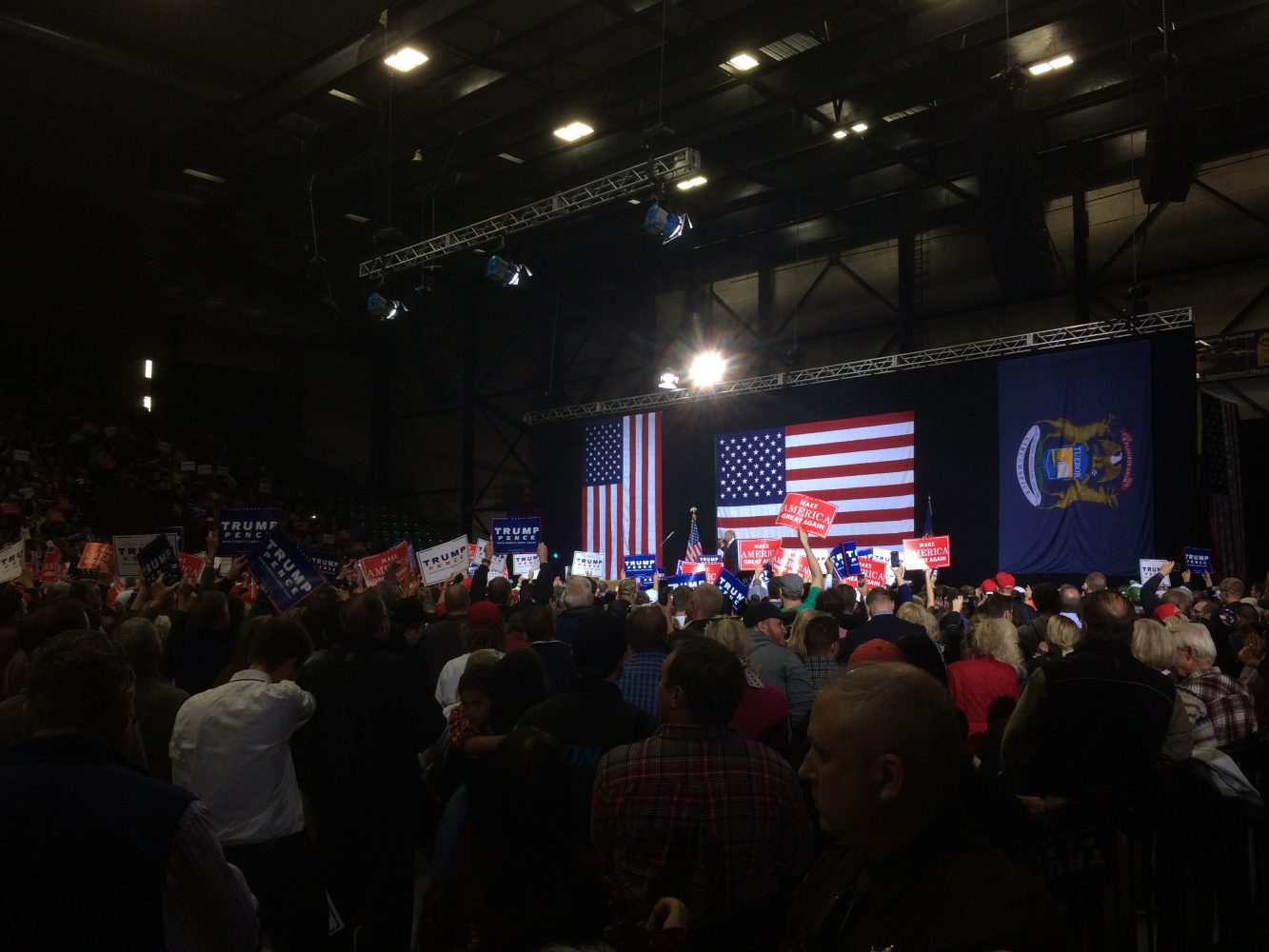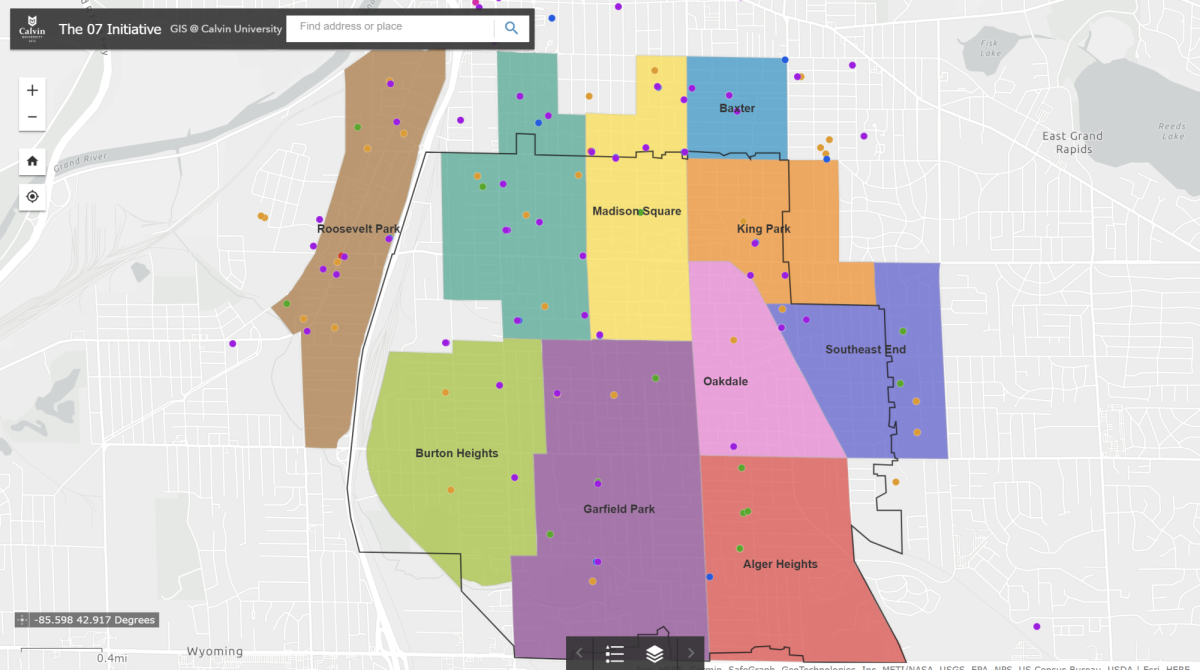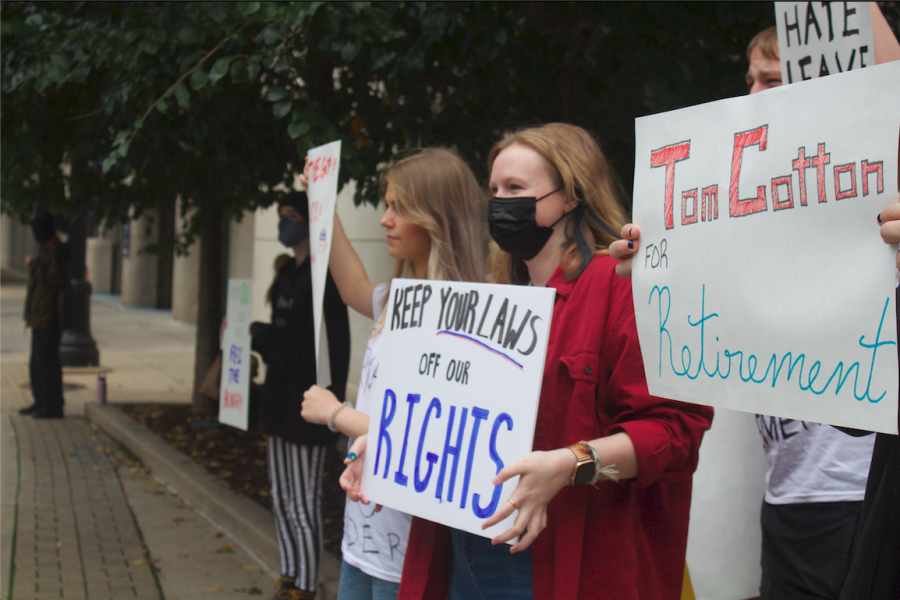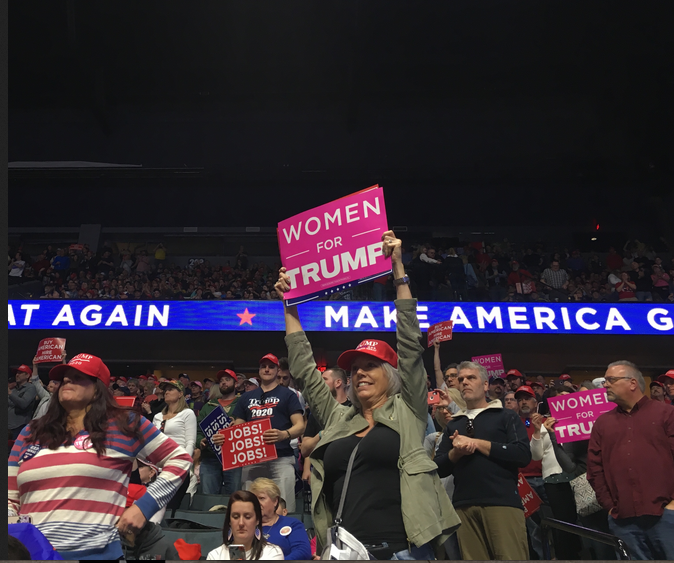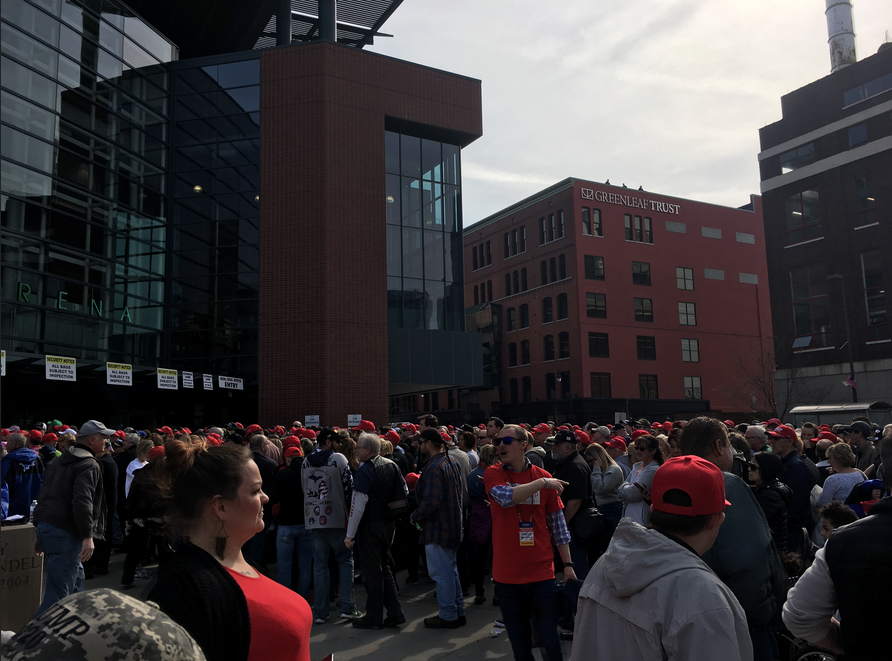Donald Trump took the stage at the Deltaplex Arena just outside Grand Rapids around 1:20 p.m. on Oct. 31, nearly an hour and a half later than the scheduled noon start time.
Despite his tardiness, the crowd, which filled the entirety of the seating and the majority of the standing area, anxiously awaited his arrival to the tune of an ostensibly Halloween-themed playlist. When he finally strode onto the stage, they greeted him with cheers and sporadic chants of “Trump!”
The presidential nominee drew a crowd of 6,000 for the Monday campaign stop, even though the campaign had announced the Grand Rapids stop only two days before.
As the applause subsided, Trump wasted little time in delivering his speech, which was carefully tailored to the people of Michigan — a population that hasn’t favored a Republican in a general election since 1988.
Attempting to connect with the working class interests of Michigan residents situated on the edges of the Rust Belt, Trump continually referenced the outsourcing of the region’s blue-collar jobs, an occurrence that he would later label “the greatest jobs theft in the history of the world.” In addressing this decrease in manufacturing jobs over the decades, his rhetoric generally relied on a depiction of an increase in foreign prosperity at the expense of the American people.
He repeatedly conveyed this notion by listing the numbers of automobile-related jobs lost by American workers to countries such as China, Mexico or India. In one particularly chiastic line, Trump stated, “It used to be that cars were made in Flint and you couldn’t drink the water in Mexico. Now the cars are made in Mexico and you can’t drink the water in Flint.”
This reference to Flint, along with several others, marked one of many attempts to establish a sense of understanding with the crowd (among these rhetorical ploys was a token reference to the Great Lakes and their alleged need of restoration).
Hoping to cover all of his demographic bases as well, Trump would later blame the harm done to the African-American communities in cities such as Flint and Detroit on “the policies of the Clintons and a lot of the democratic politicians” — not Rick Snyder’s Republican administration, which has presided over the entirety of the crisis.
Aside from the major talking points such as the building of the wall across the Mexican border, his pledge to repeal Obamacare and potential voter fraud that have been characteristic of his rally speeches, Trump was sure to continue his assault on Hillary Clinton’s character by addressing the FBI’s recent reopening of Hillary Clinton’s email investigation, which he referred to as “the biggest scandal since Watergate.”
While some Democrats have lashed out at FBI Director James Comey for what they see as an untimely, meddlesome and possibly illegal decision, Trump, who stated he previously had taken issue with Comey, said, “I have to give the FBI credit … It took guts for Director Comey to make the move that he made in light of the kind of opposition he had in them trying to protect her from criminal prosecution … What he did was the right thing.” He neglected to clarify whom he meant by “them” before abruptly moving on.
In the hopes of reinforcing his claims made last December in regards to the regulation of Muslims entering the country, Trump included a restatement of his pledge to keep America safe by suspending the refugee resettlement programs currently in place, a program which he claims, in accordance with Clinton’s plans to increase, “means generations of terrorism, extremism and radicalism spreading into our schools, our communities and every other place right here in Michigan and all throughout the United States.”
Along with those pertaining to the erection of a wall along the southern border, the claim that garnered the most raucous cheers and fist raising from the crowd was “And we will keep radical Islamic terrorists the hell out of our country!”
Even with Trump’s attempts to elicit the support of Michigan voters by referencing the decline of the automotive industry and the poor conditions of cities such as Flint and Detroit, the crowd was most responsive to Trump’s usual rhetoric.



